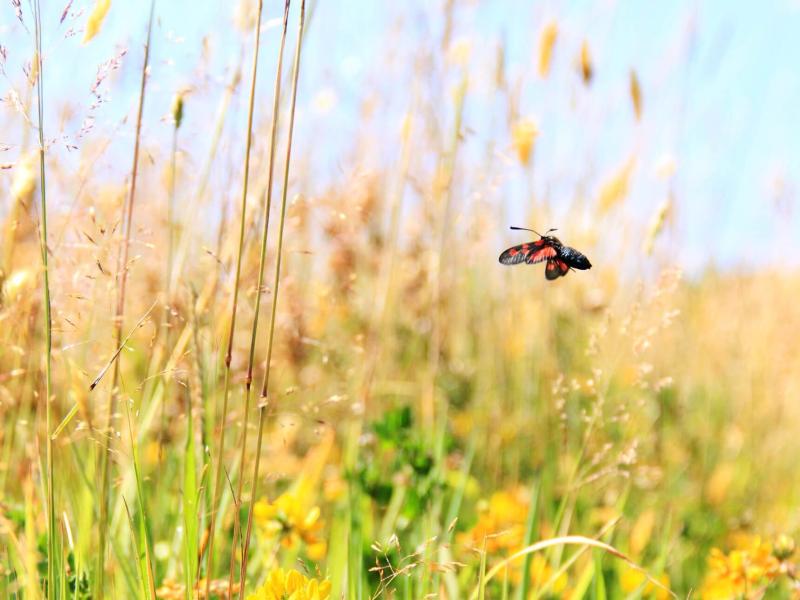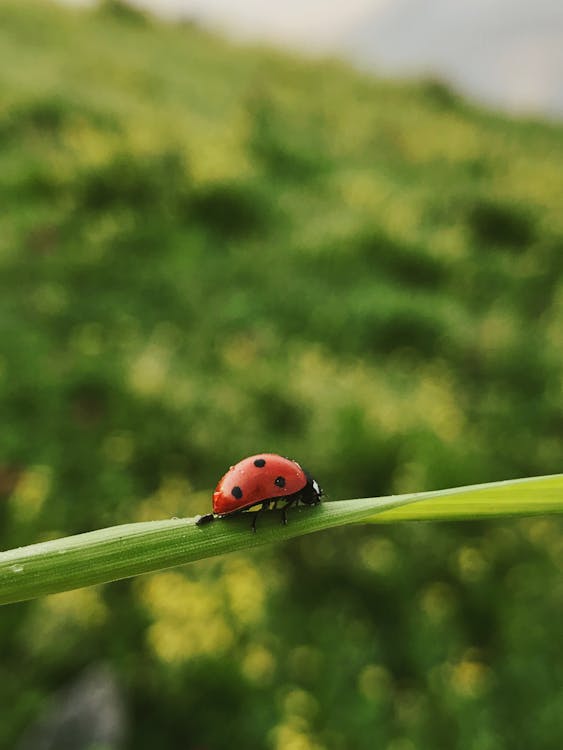Introducing Buglife - The Invertebrate Saving Charity You Can Support This January
‘If we and the rest of the back-boned animals were to disappear overnight, the rest of the world would get on pretty well. But if the invertebrates were to disappear, the world’s ecosystems would collapse.’ - Sir David Attenborough.
Buglife is the sole organisation outside of the US that is dedicated to the preservation and conservation of all invertebrate animals. They are working to protect our rarest small animals, everything from bumblebees to beetles, worms to woodlice and jumping spiders to jellyfish.
Are Invertebrates in Danger of Extinction?
There are over 40,000 invertebrate species just in the UK, and many of these are under threat from extinction more than ever before. Of all of the species that have been discovered on Earth, more than two in every three are invertebrates. Invertebrates are an essential element to a healthy planet – animals, humans and other life forms simply could not exist without them. The food we eat, the fish we catch, the birds we see, the flowers we smell and the hum of life we hear, simply would cease to exist without insects.
Invertebrates are undoubtedly facing an extinction crisis. Today, thousands of species of invertebrates are in decline and many are coming closer and closer to extinction every day. Over 4 in every 10 invertebrate species could be gone by the year 2050 if we do nothing to stop this impending extinction. Every invertebrate species plays a unique and vital part in the ecosystem, but once they are gone, they cannot be replaced. Many invertebrates have incredible life stories which are yet to be told, and we quite literally do not know what we are on the brink of losing.

Why Are These Invertebrates In Decline?
People know about plants being a rich source of medicines, but scientists are turning more and more to small animals to find chemicals and methods to help humans. A very recent and fresh example of this is the significant use of invertebrate animals in our battle against Covid-19, and subsequent variants. Two insects and a living fossil have been used in the production of vaccines, and medicines have been developed from leech saliva to save humans.
This shows how we use these creatures and the need for increased resourcing for both the protection and restoration of invertebrate species so that, as we recover from the pandemic and consider future threats to human health, we can start to halt the worldwide decline in insects and other small animals.
The USA has developed the Novavax vaccine which is made up of proteins created in cultures of Fall Armyworm (Spodoptera frugiperda) cells. The cells are infected with the created virus, which then leads them to begin producing the protein spikes that coat SARS-CoV-2. When this is injected in humans, these proteins then stimulate an antibody response. The vaccine is proving successful against all main variants of the virus and is entering into the authorisation processes around the world.
In Japan, a species of moth known as Silkworms (Bombyx mori), have been turned into insect factories that produce the protein spikes. The process takes about four days and the caterpillars are then killed. The spikes are used in home test-kits for antibodies that highlight Covid-19 resistance.

The Horseshoe Crab has blue blood which contains almost miraculous qualities. Chemicals that are present in this blue blood react to the harmful bacteria which could contaminate the vaccine. The test ensures that vaccines are in good condition. A synthetic version of one of these proteins has recently been authorised to be used in Europe, China and Japan and is used by the Pfizer vaccine, but most of the world still only uses this poor marine arthropod’s blood.
Every year in the USA and in China thousands upon thousands of crabs are caught in the wild and taken into laboratories, where they are then bled from a vein near their heart. In the USA crabs are released, but around 15% then die shortly after due to stress and the strainn their bodies. Due to this and other pressures on their habitats and populations such as bait catching, Atlantic Horseshoe Crabs (Limulus polyphemus) are now classified as ‘Vulnerable’ to extinction by the International Union for the Conservation of Nature (IUCN). In China, the Tri-spine Horseshoe Crab (Tachypleus tridentatus) is even less fortunate, bled crabs unfortunately suffer 100% mortality because they are then sold for food and the production of chitin. The Tri-spine Horseshoe Crab is listed as ‘Endangered’ on the IUCN red list.
From medieval times to the modern day, the Medicinal Leech (Hirudo medicinalis) has also played a well-known role in medicine. Sixteen chemicals discovered in leeches are now used to save many many lives. Bivalirudin is a synthetic version of hirudin that was first discovered in the leech saliva, and is a frequently used anticoagulant for many illnesses including some Covid cases. The over-collecting of these leeches caused several local extinctions, but the leech was protected across Europe in 1992 and now has a ‘Near Threatened’ status.
Heparin, another anticoagulant which is used in the treatment of patients with severe Covid symptoms and who are vulnerable to blood clots, can be taken from a range of animals including Freshwater Mussels, Mangrove Crabs, Clams, Shrimps and the Sand Dollar (Mellita quinquisperforata), a close relative of sea urchins.
Although there are global commitments to stop the rapid decline of biodiversity by 2020, none of these targets were fully met, and most importantly the loss of thousands of species continues. The Secretariat of the Biodiversity Convention recently stated that biodiversity “financing would not appear to be sufficient in relation to needs”.
Invertebrate charities such as Buglife want a new structure for biodiversity conservation to be put in place. The new framework must make sure that investment in saving the world's biodiversity is put on a ratchet system, as has already been done for climate change.

What Is the Aim of Buglife?
The aim of Buglife is to stop the extinction of all invertebrate species and achieve sustainable populations of invertebrate animals.
They are working hard to achieve this through:
•Undertaking practical conservation projects that will contribute to achieving their aim.
•Championing the importance of invertebrates and raising awareness of challenges to their survival.
•Assisting in developing legislation and policy that will ensure the conservation of invertebrates.
•Developing and disseminating knowledge about how to save invertebrates.
•Encouraging and supporting invertebrate conservation initiatives by other organisations in the UK and across the world.
How Can I Help Buglife?
You can help Buglife this January by voting for them in our January charity poll. The poll is on the right hand side of this page, and it will be available throughout January to vote in (for free!). You can also visit the Buglife website to find out more about supporting this worthy cause.
You can vote for Buglife from 1st January 2025 - 31st January 2025.






